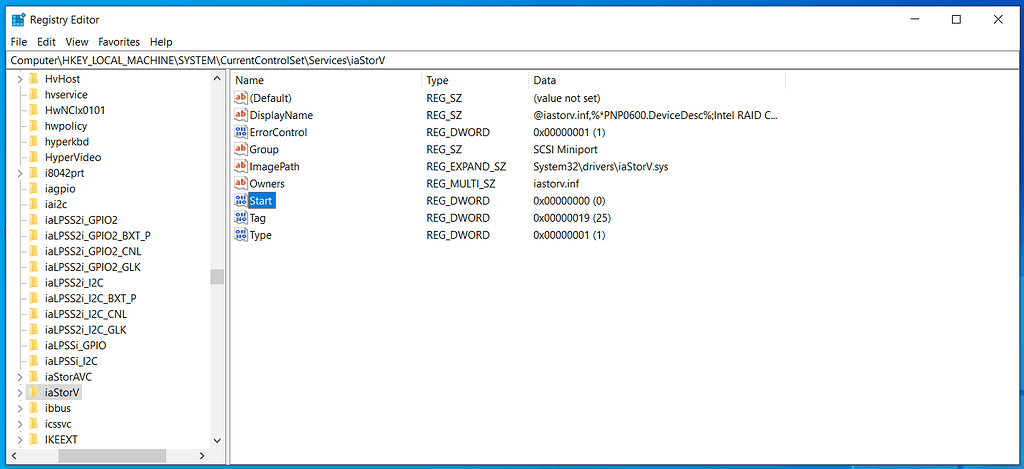I'm currently reinstalling Windows due to unrelated issues. I'm using the same Windows 11 edition as in the previous installation.
I've encountered this exact same issue in the past already but never found a root cause. Always fixed it after like 3 reinstalls later. But here we go again...
I'm experiencing an interesting phenomenon. Programs - as in any kind of executables - are taking literal minutes to actually launch. It's really reminiscent of the overwhelmed system disk that happened mainly when running os on HDD. You launch the program once, twice, thrice, ... and then suddenly you'd get all your 30 instances launched at the same time.
Except this is now happening on a modern SSD, with high system specs and an idle OS. I therefore believe there is no hw bottleneck (mainly bcs it works fine (programs launch as fast as they should) on in the old install).
There are some interesting remarks about this behavior:
1. It affects mainly installers but also normal programs (takes minutes to finally launch)
2. Most of the time it apparently affects only the first-ever launch of a specific executable and subsequent launches are much faster, as would one expect from the beginning. This however isn't consistent.
3. It affects OTHER executables that are run by other programs. For example, I was installing utility that required some C++ redistributable. I already waited a good minute for the utility installer to launch but when the utility installer invoked the redistributable installer, it took another few minutes for redistributable to actually execute and get installed (the install itself was quite fast - again, it's always the launch itself that takes ages).
I can't unfortunately reliably reproduce this, but what I usually do is:
After OOBE let Windows update do its thing,
Start installing my programs such as web browsers etc...
Defender starts to eat any tweak / open source sw I'm used to using, and I remember why I hate the defender
Attempt to permanently disable defender the official way (Tamper protection, gpedit, etc...)
Doesn't work bcs ofc it doesn't, keeps reenabling itself, eats files despite being supposedly disabled, flags the registry setting that disables behavior analysis as a malware attack, and 'remediates' it whilist being disabled (YES THIS ACTUALLY HAPPENED WTF DEFENDER)
Get fed up with its bullshit, download Windows tweakers and sordum defender control utility and throw everything on the defender until it stays put!
After half a day-long battle it seems to be finally disabled, continue installing sw.
Around the time of fighting Defender, the issue I'm making this post about surfaces and programs start to take ages to launch.
It's almost like the defender would still try to scan or analyze the executables prior to being launched but for some reason, it now takes ages to finish/fail.
Has anybody encountered such behavior as well? Or perhaps have some better - as in surefire reliable safe permanent - way of turning off defender (yes, I already tried countless guides including from this forum/website and similar).
Thank you!
I've encountered this exact same issue in the past already but never found a root cause. Always fixed it after like 3 reinstalls later. But here we go again...
I'm experiencing an interesting phenomenon. Programs - as in any kind of executables - are taking literal minutes to actually launch. It's really reminiscent of the overwhelmed system disk that happened mainly when running os on HDD. You launch the program once, twice, thrice, ... and then suddenly you'd get all your 30 instances launched at the same time.
Except this is now happening on a modern SSD, with high system specs and an idle OS. I therefore believe there is no hw bottleneck (mainly bcs it works fine (programs launch as fast as they should) on in the old install).
There are some interesting remarks about this behavior:
1. It affects mainly installers but also normal programs (takes minutes to finally launch)
2. Most of the time it apparently affects only the first-ever launch of a specific executable and subsequent launches are much faster, as would one expect from the beginning. This however isn't consistent.
3. It affects OTHER executables that are run by other programs. For example, I was installing utility that required some C++ redistributable. I already waited a good minute for the utility installer to launch but when the utility installer invoked the redistributable installer, it took another few minutes for redistributable to actually execute and get installed (the install itself was quite fast - again, it's always the launch itself that takes ages).
I can't unfortunately reliably reproduce this, but what I usually do is:
After OOBE let Windows update do its thing,
Start installing my programs such as web browsers etc...
Defender starts to eat any tweak / open source sw I'm used to using, and I remember why I hate the defender
Attempt to permanently disable defender the official way (Tamper protection, gpedit, etc...)
Doesn't work bcs ofc it doesn't, keeps reenabling itself, eats files despite being supposedly disabled, flags the registry setting that disables behavior analysis as a malware attack, and 'remediates' it whilist being disabled (YES THIS ACTUALLY HAPPENED WTF DEFENDER)
Get fed up with its bullshit, download Windows tweakers and sordum defender control utility and throw everything on the defender until it stays put!
After half a day-long battle it seems to be finally disabled, continue installing sw.
Around the time of fighting Defender, the issue I'm making this post about surfaces and programs start to take ages to launch.
It's almost like the defender would still try to scan or analyze the executables prior to being launched but for some reason, it now takes ages to finish/fail.
Has anybody encountered such behavior as well? Or perhaps have some better - as in surefire reliable safe permanent - way of turning off defender (yes, I already tried countless guides including from this forum/website and similar).
Thank you!
- Windows Build/Version
- Win 11 Pro for Workstations 22H2 22621.1848
My Computer
System One
-
- OS
- Windows 11 Pro for Workstations, 10 Pro
- Computer type
- Laptop
- Manufacturer/Model
- Lenovo Legion 5
- CPU
- i7-12700H
- Motherboard
- Lenovo
- Memory
- 2x32GiB DDR5
- Graphics Card(s)
- RTX3060 mobile




















